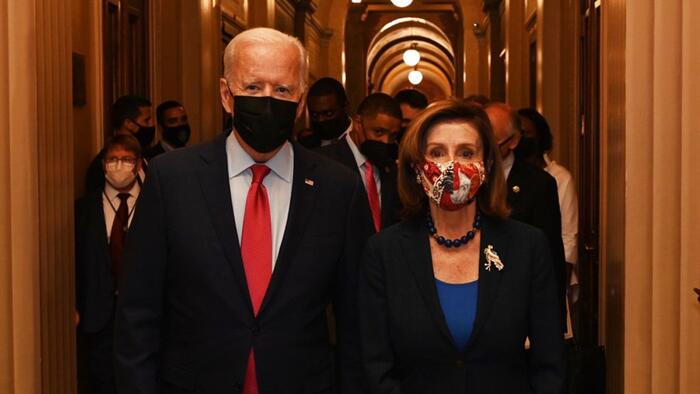The Auberge du Soleil, an upscale hotel and spa in Napa Valley, is praised for its luxurious accommodations and scenic views, attracting prominent visitors, including celebrities and tech executives. Beneath this glamorous facade, however, financial records indicate that the investment made by Rep. Nancy Pelosi and her husband, Paul Pelosi, has underperformed for many years, showing minimal profits or even losses. Interestingly, this trend reversed dramatically during the COVID-19 pandemic, when the hotel received approximately $9 million in congressionally authorized relief funds in 2020 and 2021. Notably, annual income from their investment soared to between $1 million and $5 million in 2021, a stark contrast to previous years where profits rarely exceeded six figures.
This unprecedented income surge coincided with a broader trend among various lawmakers whose businesses benefited from COVID-era financial programs targeted at small businesses, such as the Paycheck Protection Program (PPP). Similar situations arose with several other members of Congress, who also tapped into federal assistance meant to alleviate the pandemic’s financial toll. Rep. Greg Pence and Rep. Dean Phillips, among others, were reported to have received substantial loans through these programs. Despite being part of a larger pattern and underscoring the systemic nature of lawmakers benefiting from legislation they enact, Nancy Pelosi’s financial interests in the Auberge du Soleil have received significantly less scrutiny.
The substantial profits linked to the Auberge du Soleil become especially pertinent given Pelosi’s critical role in the passage of COVID stimulus measures, which totaled around $5.5 trillion. Her public statements during this period often blamed Republican opposition for the delay in much-needed funding. While the exact financial gains from the Auberge du Soleil investment remain murky, primarily due to the hotel’s private status and disclosure regulations, it’s clear that the Pelosis benefitted significantly, illustrating a potential conflict of interest on Pelosi’s part as a legislator.
In early pandemic discussions, allegations surfaced regarding lawmakers profiting from COVID relief funds like the PPP, which provided forgivable loans to various businesses, including those in which Pelosi had a stake. At the time, it was reported that businesses associated with Pelosi received around $2.4 million in PPP loans. However, this amount vastly underrepresents the true scale of aid that their holdings received, which, according to more recent analyses, amounted to roughly $28 million when factoring in other government relief programs available during the pandemic, including Economic Injury Disaster Loans and Restaurant Revitalization Fund grants.
The financial assistance provided to the Pelosis, particularly through the Resort Revitalization Fund, raised concerns over fairness and transparency, especially since the funds were aimed at maintaining small businesses amidst a heavily impacted economy. Auberge du Soleil and other Pelosi-affiliated enterprises benefitted from government assistance while many other businesses continually struggled to survive. The fact that these funds were part of a program spearheaded by a member of Congress who had a vested interest in these businesses invites scrutiny, underscoring a possible clash between public duty and private gain.
Finally, while there is no evidence indicating that the Pelosis acted illegally in seeking or receiving these funds, the situation draws attention to broader ethical issues surrounding congressional appropriations and personal investments. Experts argue that this scenario exemplifies how wealthy officials can leverage their legislative powers to secure governmental support for their financial interests. Amid considerable inflation and allegations of rampant fraud in multiple COVID relief programs, the Pelosis’ experience highlights the complexities of maintaining ethical boundaries for lawmakers tasked with crafting financial rescue programs while simultaneously being financially involved with the entities they aim to assist.

